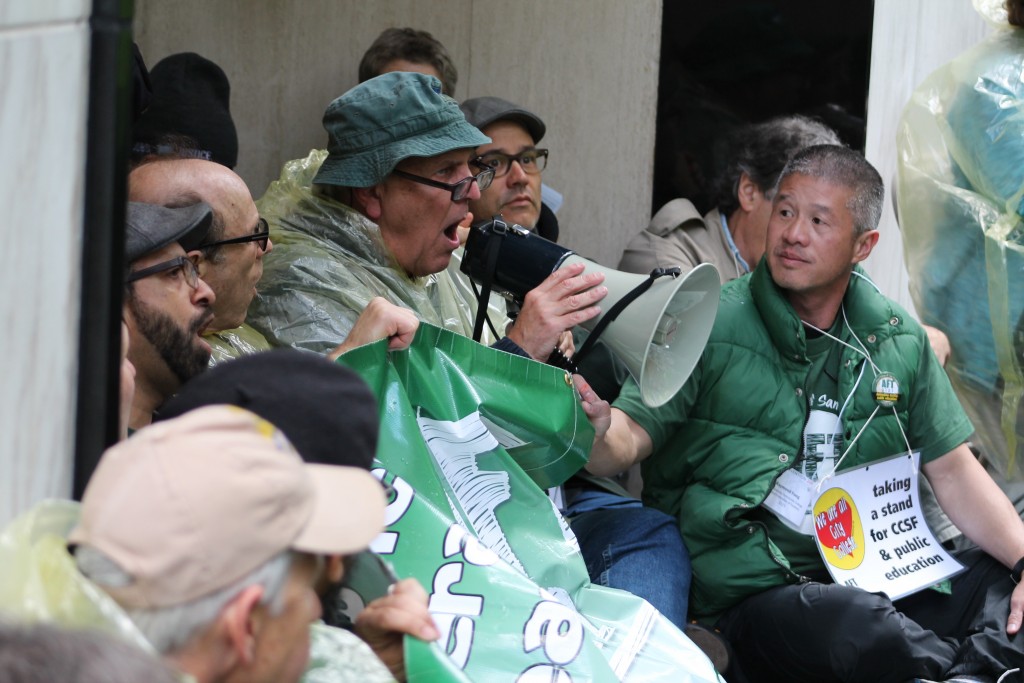Let’s Start Thinking Outside the Box

By Patrick Fitzgerald
What’s good for the goose is good for the gander—or at least that’s what I’ve been told. At the heart of this idiom is the concept of fairness in sharing both the burdens and the benefits of any situation.
We may not be practicing fairness well when we review the current dilemma of City College. Our college is facing the possibility of a faculty strike that moved one step closer to reality as of the instructors’ March 10 strike vote.
Why is the breakdown in communication happening now, and what led us down this path of confrontation? Some blame a new tack taken by negotiators away from bargaining based on mutual interest to one driven by the best bargain with its inherent winners and losers as the reason for the communication failure.
If the best bargain strategy is pursued, it may produce short-term benefits but offer long-term heartburn as resentment simmers and poisons employer-employee relations. No one likes to be unfairly used.
Fairness
The American Federation of Teachers (AFT) Local 2121 claims administrative salaries have increased by 29 percent overall during the past year alone. If this claim is true, and is about increasing salaries rather than expanding staff , why shouldn’t faculty salaries increase as much?
What the administration and the Board of Trustees put forward is the fact that City College’s enrollment has dropped nearly one-third since 2012, consequently opening a $24 million budget shortfall that made the need for a balanced budget a prime priority. However, citing this fact as the reason for withholding union members’ pay increases while increasing administrative salaries is inherently a double-dealing argument.
What does this double-deal do to our institutional morale? Could City College be entering a death spiral where cost cutting measures escalate, enrollment continues shrinking, and the budget gap is never closed?
Maybe it’s time—in fact overtime—for thinking outside of the box.
AFT 2121 President Tim Killikelly said, “San Francisco is not 26 percent smaller than it was in 2007. In fact, it has grown.” He’s right, since 2007, San Francisco has grown by approximately 100,000 people.
How about a truly aggressive marketing department with a vigorous, interactive plan that includes one-on-one meetings with key community organizations, businesses and community members?
Opportunity
The fact that San Francisco has grown by more than 13 percent could be seen as a long-run opportunity. Most businesses would be investing in a robust, reciprocal marketing plan that promotes the college’s strengths relentlessly.
Instead, our marketing plan is subcontracted out to a marketing firm. No on-campus marketing department is solely dedicated to coordinating and promoting the college. Where are the stakeholders who have some skin in the game?
How about a truly aggressive marketing department with a vigorous, interactive plan that includes one-on-one meetings where key community organizations, businesses and members are consulted and enrolled to support the college? How about holding collaborative instead of adversarial negotiations that incentivizes both the administration and faculty to persistently and aggressively promote the college together?
Should administrators and union members first negotiate a memo of understanding that identifies City College’s institutional welfare as a priority to be handled with respect and collective sacrifice? Should we be emulating our football and basketball teams who spectacularly exhibited these traits this academic year?
Could we think outside the box and come up with a truly innovative way to consider these issues instead of adopting the “us versus them” model? Until then, administration should in good faith drop their salary to 2007 levels, or as much as possible, until union partners can equally share these benefits.
After all, faculty are the ones on the front line every day, as much as if not more than the administrators. They deal with the stress of not only teaching but also fighting a perception of a declining institution. That is hard work and they are still there producing quality results.
And, in these negotiations especially, everyone would do well to heed one more idiom too. Don’t kill the goose that laid the golden egg.
Contact a reporter
Send an email to: Patrick Fitzgerald or tweet to @HitSquarely
